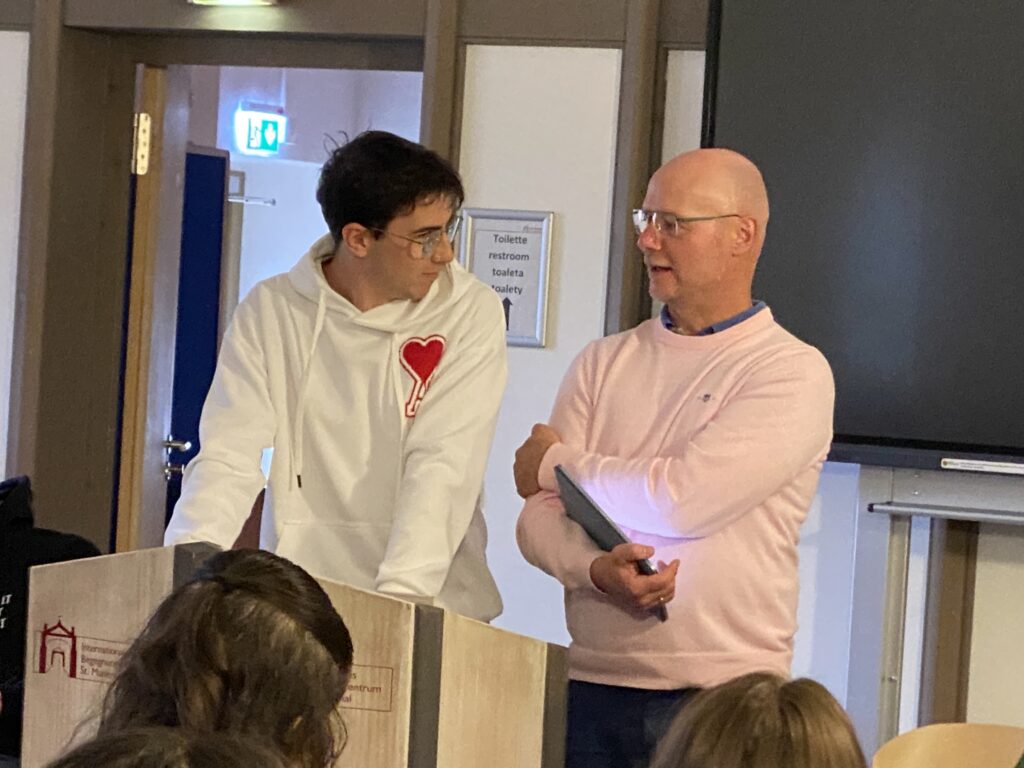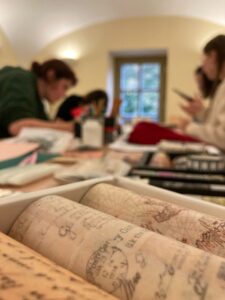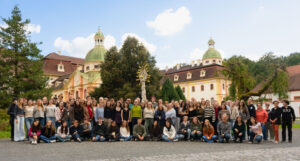by Julie Marečková
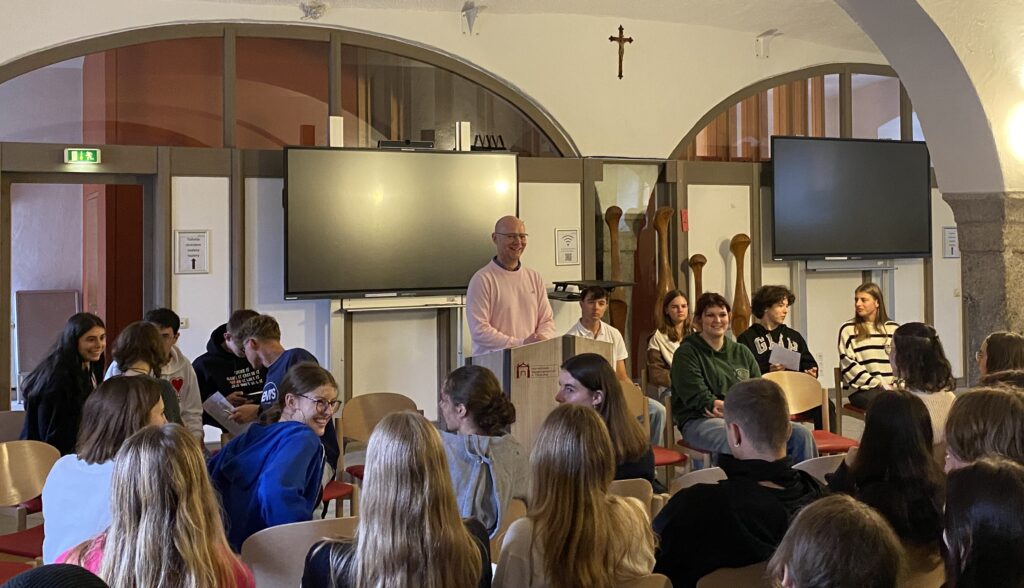
St. Marienthal is a place where students from all across Europe gather to participate in workshops of their own choice. There are many options like photography, origami, short film, creative writing and a lot more. But that’s not everything! The program includes many more activities like a trip to Görlitz, national evenings or a debate. The debate takes place on Monday afternoon and every year, each country chooses two students to participate in it to discuss important questions concerning the future of Europe or the whole world. This year’s topic was: AI as an opportunity or a path to loss of control – How can AI influence our future?
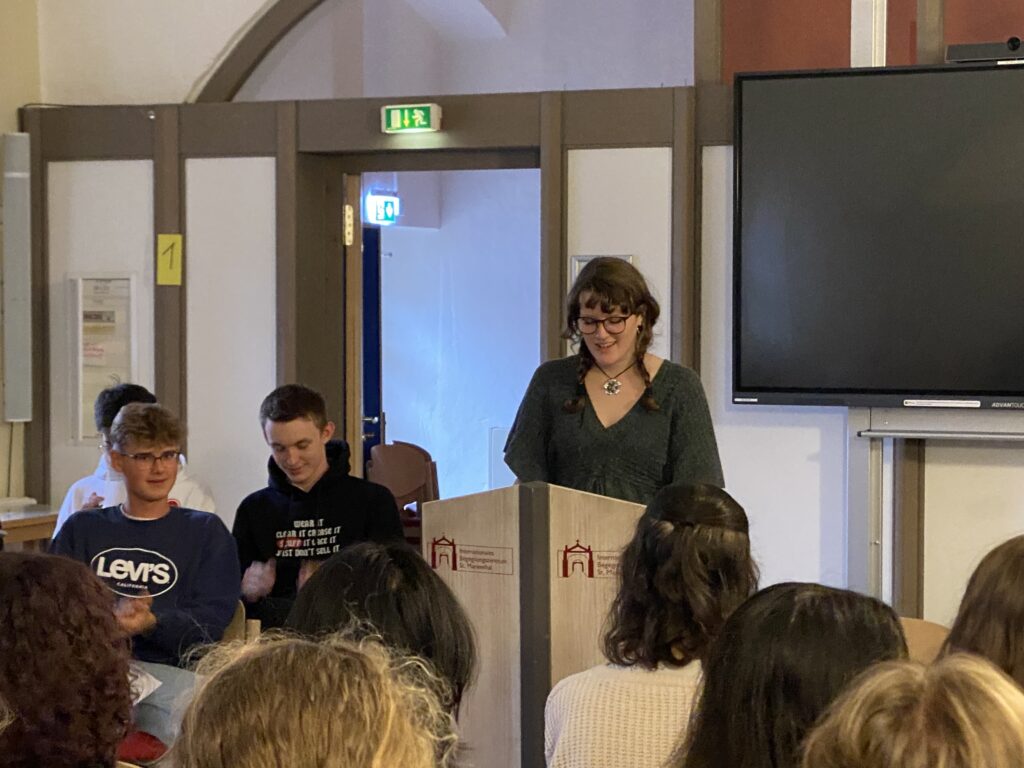
In the last few years, artificial intelligence has become more popular than ever before, mostly because Chat GPT and programs for creating pictures or songs have become accessible for everybody. Some students even started to use AI for school and older people were fascinated by AI generated images. This happened in 2023 and now, two years later, some people use AI on a daily basis. The most discussed points in the debate were medicine and critical thinking. Students who were pro-AI often argued that artificial intelligence is a great tool in fields like medicine thanks to its ability to quickly analyse large amounts of data and recognise patterns. One of the students addressed the audience saying: “Just imagine yourself going to a doctor. They are human beings, they can make mistakes. But AI has millions and millions of examples. Millions and millions of different kinds of scans and related information, so it can give you the exact diagnosis.”
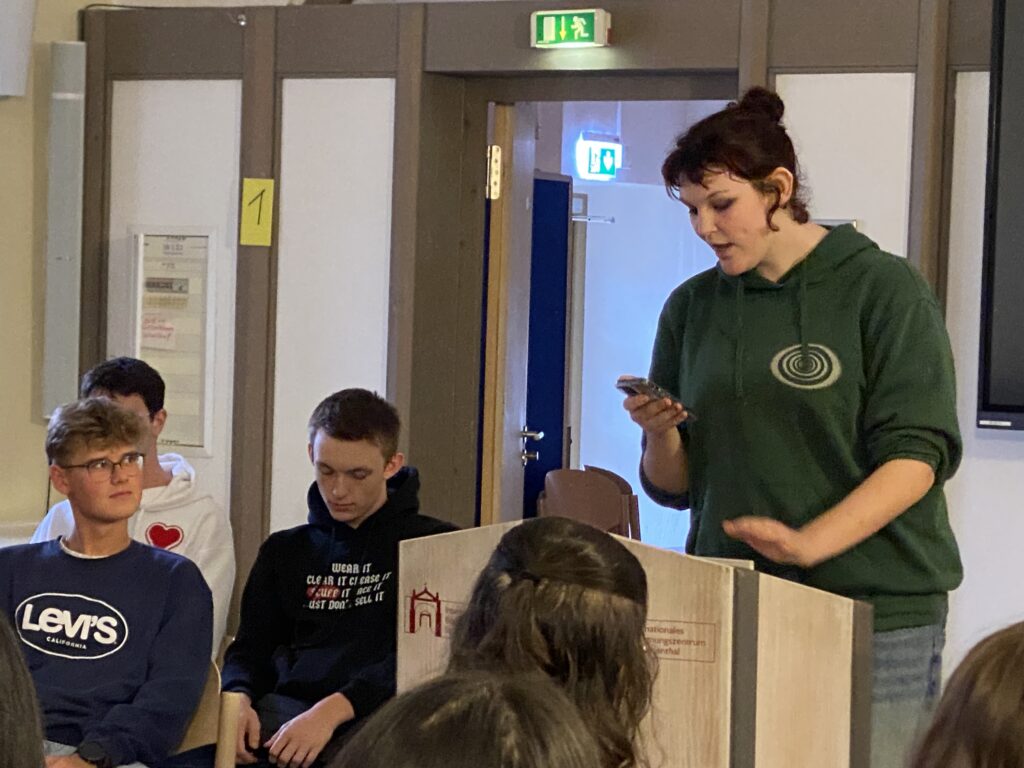
But a girl from the opposing group quickly responded: “My father is a doctor and AI is making mistakes. He tried using AI to diagnose diseases based on symptoms and it was not working well. Its advice could be fatal.” The use of AI in medicine is a very controversial issue, not only because it isn´t always 100% correct, but also for ethical reasons: “You want a human to tell you bad news, not a computer!”And that leads to one of the biggest problems of AI. It simply is NOT a human being.
“In the 18th century Kant urged people to think for themselves, to leave behind blind attendance of authority and to have the courage to use their own reason.” These are the words of Immanuel Kant with which one of the students started his speech and added that the human race is supposed to get better – we should be thinking for ourselves and not just leave all the complicated tasks to AI. A student from the audience reacted by pointing out that if we use AI to do all the annoying and repetitive chores for us, it will definitely save our time, but on the other hand, it can lead to loss of critical thinking, because we will rely on AI so much that we will lose an ability to form our own opinions.
It is commonly known that critical thinking is becoming more and more crucial these days, because AI is able to create highly realistic fake images, audio, or videos that can be used to spread false information and manipulate public opinion. A student from Czechia pointed out that deepfakes can impersonate politicians, forge news footage, or create fake evidence. As these technologies are becoming more and more convincing, society could lose its ability to distinguish the truth from fiction, undermining trust in media, elections, and democratic institutions.
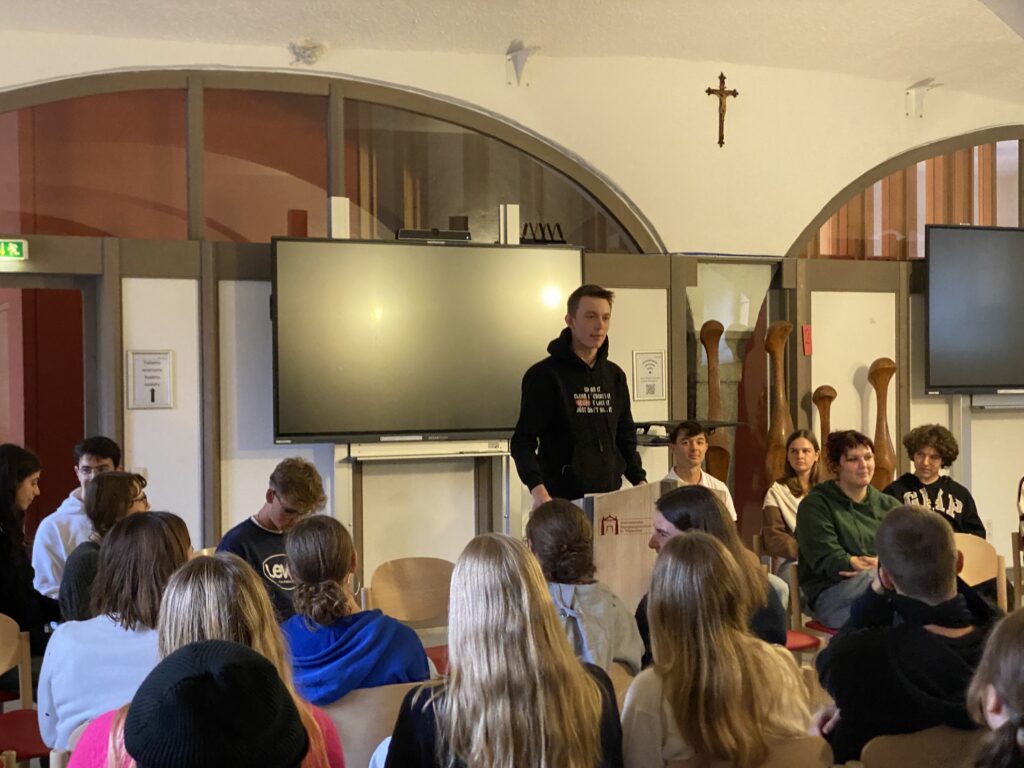
Is AI the right path for the future?Strong and interesting arguments on both sides just proved the importance and complexity of this question. Although their arguments differed at times, there was something everybody agreed on: we should not use AI to replace us, but to help us get better and even if we have something that is, supposedly, able to think for us, we should not stop learning ourselves.
